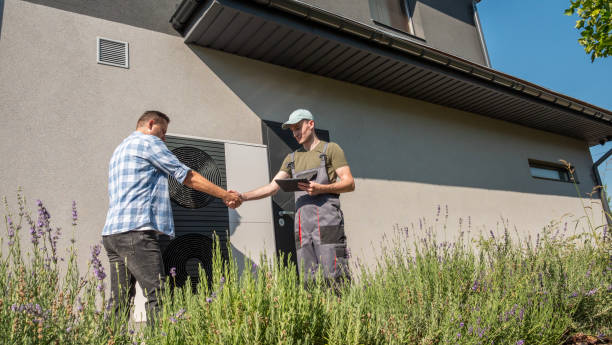HVAC System Comparison Guide: Choose the Best System for Your Home
This comprehensive hvac system comparison guide will help you evaluate different hvac systems and select the most energy efficient hvac system for your property. We’ll explore various cooling system options, compare energy efficiency ratings, and help you understand which system delivers optimal comfort while reducing energy costs.
Understanding Different Types of HVAC Systems
When comparing different hvac systems, it’s essential to understand the fundamental differences between each cooling system and heating option. The right hvac system for your home depends on climate, existing infrastructure, energy efficiency goals, and budget considerations.
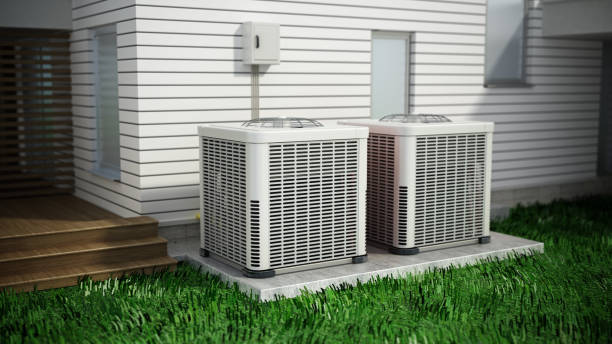
Central Air Conditioning Systems: Traditional Cooling Solutions
Central air conditioners remain one of the most popular cooling units for residential properties. These ducted hvac systems use an outdoor compressor unit connected to an indoor air handler that distributes conditioned air throughout your home via ductwork. A central air system typically works in conjunction with a furnace to provide both heating and cooling capabilities.
Key Features of Central Air Conditioners:
- SEER ratings between 14-21 for modern units
- Whole-home comfort controlled by one thermostat
- Best for homes with existing ductwork
- Consistent cool air distribution to separate rooms
- Requires proper installation to maximize efficiency
The efficiency of central air conditioners is measured by seasonal energy efficiency ratio (SEER) ratings, with higher ratings indicating more energy efficient performance. Many homeowners find that combining an air conditioner with heating maintenance services ensures year-round system reliability.
Heat Pumps: Versatile Heating and Cooling Solutions
Heat pumps represent one of the most energy efficient hvac systems available today. Unlike traditional air conditioners that only provide cooling, heat pumps offer both heating and cooling capabilities in a single efficient system. These systems work by transferring heat rather than generating it through burning fuel, making them an energy efficient option for moderate climates.
Air source heat pumps extract heat from outdoor air and transfer it indoors during colder weather, then reverse the process during warmer months to provide cool air. Modern air source heat pump technology has advanced significantly, allowing these systems to provide heat even in colder climates where outdoor temperature drops below freezing. The environmental protection agency recognizes heat pumps as energy efficient options that can significantly reduce energy costs compared to traditional heating and cooling systems. ENERGY STAR certified air source heat pumps meet strict efficiency guidelines set by the EPA.
Ductless Mini Split Systems: Flexible Zone Control
Ductless mini splits provide an innovative solution for homes without existing ductwork or those seeking more control over individual rooms. These ductless systems consist of an outdoor compressor connected to one or more indoor units via refrigerant lines, eliminating the need for extensive ductwork.
Benefits of Ductless Mini Systems:
- Superior energy efficiency (avoids 20-30% duct losses)
- Zone control for individual rooms
- Quiet operation compared to traditional systems
- No extensive ductwork installation needed
- Single zone or multi-zone configurations available
Evaluating HVAC System Energy Efficiency
Understanding energy efficiency ratings is crucial when using this hvac system comparison guide to select your new hvac system. These ratings directly impact your home’s energy efficiency, utility bills, and long-term operating costs.
HVAC Energy Efficiency Ratings Comparison
| Rating Type | System Application | What It Measures | Good Rating | Excellent Rating |
| SEER (Seasonal Energy Efficiency Ratio) | Air conditioners, Heat Pumps (cooling) | Cooling efficiency over entire season | 14-16 | 18-21+ |
| HSPF (Heating Seasonal Performance Factor) | Heat Pumps (heating) | Heating efficiency over entire season | 8-9 | 10+ |
| AFUE (Annual Fuel Utilization Efficiency) | Furnaces, Boilers | Fuel-to-heat conversion percentage | 80-90% | 92-98% |
| EER (Energy Efficiency Ratio) | All Cooling Systems | Peak cooling efficiency at 95°F | 11-13 | 14+ |
The seasonal energy efficiency ratio measures how efficiently an air conditioning system or heat pump provides cooling over an entire cooling season. Higher SEER ratings indicate a more energy efficient system. For example, upgrading from a 10 SEER unit to a 16 SEER system can reduce cooling costs by approximately 37%. The Department of Energy sets minimum SEER standards that vary by region to promote energy efficiency.
Annual fuel utilization efficiency measures how effectively heating systems convert fuel into usable heat. Modern high efficiency furnaces typically achieve AFUE ratings between 90-98%, significantly outperforming older models that may operate at 60-70% efficiency. A 95% AFUE rating means that 95% of the fuel’s energy becomes heat for your home, with only 5% lost through exhaust. The American Society of Heating, Refrigerating and Air-Conditioning Engineers (ASHRAE) establishes industry standards for HVAC efficiency ratings.
Comparing Ducted and Ductless HVAC Systems
Your hvac system comparison guide must address the fundamental choice between ducted hvac systems and ductless alternatives. This decision significantly impacts installation costs, energy efficiency, and system flexibility. Each option offers distinct advantages depending on your home’s configuration and comfort priorities.
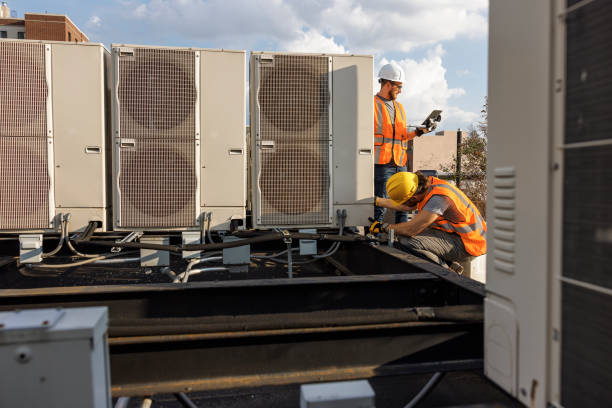
Ducted HVAC Systems
Traditional ducted hvac system configurations distribute conditioned air through a network of ducts and vents throughout your home. These systems feature a central air system with an outdoor compressor and indoor air handling unit that pushes heated or cooled air through ductwork.
Key Advantages:
- Whole-home comfort with one thermostat control
- Hidden infrastructure maintains clean aesthetics
- Compatible with existing ductwork
- Centralized air filtration improves indoor air quality
- Most cost-effective when ducts already exist
For homes with existing ductwork in good condition, replacing an old system with a new efficient hvac system using the existing ducts often represents the most affordable approach. However, proper installation and regular AC maintenance services are essential to prevent energy losses from duct leaks.
Ductless Systems Advantages
Ductless systems offer compelling benefits, particularly for homes without existing ductwork or those seeking enhanced energy efficiency and zone control.
Key Benefits:
- 20-30% more energy efficient (eliminates duct losses)
- Individual control for separate rooms
- Easier installation without extensive ductwork
- Extremely quiet operation
- Flexible indoor unit placement options
- Ideal for home additions and renovations
While ductless systems involve higher upfront costs per zone, the energy savings and flexibility often justify the investment. These systems particularly excel in properties where installing ductwork is impractical or cost-prohibitive.
Key Factors in Your HVAC System Comparison Guide
Selecting the right system involves evaluating multiple factors beyond just the cooling system or heating equipment type. This comprehensive hvac system comparison guide addresses the critical considerations that impact your decision for optimal comfort and efficiency.
Climate and Installation Requirements
Your local climate significantly influences which hvac system performs most efficiently. In mild climates, heat pumps often represent the most energy efficient option. However, in colder climates with extended freezing periods, air source heat pump efficiency declines and supplemental heating may be necessary.
Your home’s existing infrastructure heavily influences the right hvac system choice. Well-maintained ductwork supports central air conditioning or heat pump installations economically. Available space for equipment, electrical capacity for high-efficiency systems, and proper HVAC system sizing through professional load calculations ensure your new hvac system matches your home’s specific requirements.
Cost Analysis: Investment vs. Savings
Your hvac system comparison guide must balance upfront costs against long-term energy savings. Installation costs vary significantly depending on system type, home configuration, and service provider. Window units offer the most affordable option for individual rooms, while whole-home solutions like central air conditioners, heat pumps, and ductless mini splits require substantial investment. The final cost depends on equipment selection, installation complexity, and your chosen HVAC contractor. Learn more about HVAC replacement cost factors for accurate budgeting.
The most energy efficient system reduces utility bills through lower energy consumption. High-efficiency systems with superior SEER and AFUE ratings cost more initially but deliver ongoing energy savings. Over a system’s lifespan, an energy efficient hvac system can save thousands in reduced energy costs. Many utility companies and government programs offer incentives for installing energy efficient hvac systems, with heat pumps and high-efficiency air conditioners often qualifying for substantial rebates that help offset upfront installation expenses.
Specialized HVAC System Configurations
Beyond standard system types, several specialized configurations deserve consideration in your comprehensive hvac system comparison guide.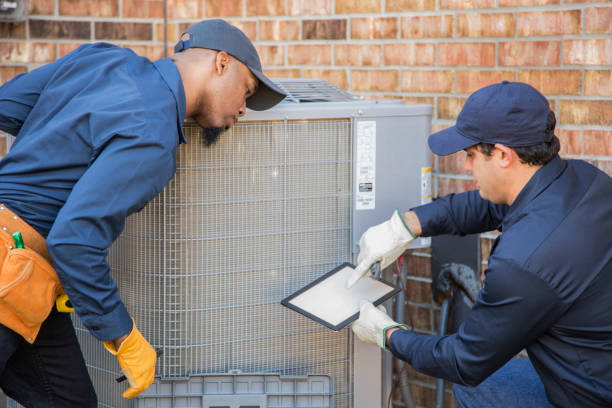
Hybrid and Geothermal Systems
Hybrid systems combine a heat pump with a furnace, automatically switching between them based on outdoor temperature and efficiency calculations. In moderate weather, the air source heat pump provides efficient heating. When outdoor temperature drops below 25-35°F, the system switches to burning fuel for heating. This configuration maximizes energy efficiency while ensuring reliable performance in varied climates.
Geothermal systems represent the most energy efficient option available, using the earth’s stable underground temperature for exceptional heating and cooling. These ground source systems can reduce energy costs by 30-70% compared to traditional systems and last 50+ years for underground components. Installation costs vary by property size, soil conditions, and service provider. Energy savings and incentives provide excellent long-term value.
Essential Maintenance for System Longevity
Different hvac systems require varying maintenance levels to ensure optimal performance and extended lifespan. Regular care protects your investment and maintains peak energy efficiency throughout the system’s life.
Annual Maintenance Requirements:
- Professional tune-ups before heating/cooling seasons
- Coil cleaning and refrigerant level checks
- Electrical connection inspections
- Air handler and outdoor compressor servicing
- Filter changes every 1-3 months for ducted systems
- Monthly cleaning of ductless mini indoor units
All systems benefit from professional maintenance services. Heating maintenance services schedule tune-ups before cold weather arrives, while air conditioning maintenance should occur before summer. With proper care, central air conditioners last 15-20 years, heat pumps 10-15 years, and ductless mini splits 20+ years. Learn more about HVAC filter replacement to keep your system running efficiently.
Making Your Final HVAC System Selection
After reviewing this comprehensive hvac system comparison guide, you’re equipped to make an informed decision about your new hvac system. For additional guidance, explore our detailed article on how to choose an HVAC system that matches your needs.
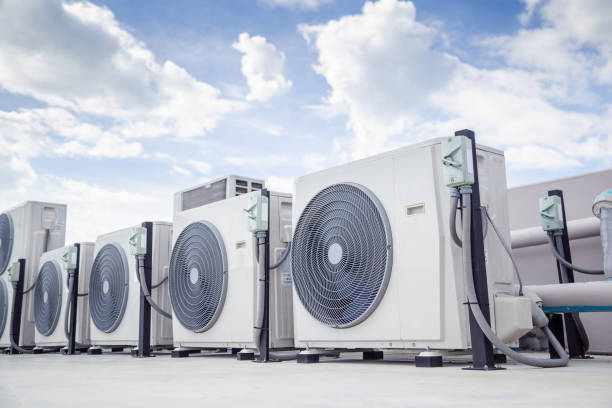
Evaluate your home’s infrastructure, available space, and specific comfort challenges. Research local incentives through utility company rebates and federal tax credits that can significantly reduce costs for energy efficient hvac systems. Work with qualified HVAC contractors who perform proper load calculations and recommend appropriate systems.
Plan for annual professional maintenance to keep your system operating efficiently. If you’re prioritizing efficiency, check out our guide to the most energy efficient HVAC systems available. For comprehensive support from consultation through installation and maintenance, Callidus Air provides expert guidance to help you select and install the perfect system for your home.
In Summary
This hvac system comparison guide has explored various cooling system options, energy efficiency ratings, and key considerations impacting your decision. From central air conditioning and heat pumps to ductless mini split systems, each hvac system offers unique benefits suited to different homes and climates.
Ready to upgrade your home’s heating and cooling system? Contact us at Callidus Air today to schedule a consultation with our experienced HVAC professionals.
Frequently Asked Questions About Hvac System Comparison Guide
What is the most energy efficient HVAC system for residential use?
Geothermal heat pumps represent the most energy efficient hvac systems available, potentially reducing energy costs by 30-70% compared to traditional systems. However, air source heat pumps offer excellent efficiency at lower upfront costs and work well in most climates. The best choice depends on your climate, budget, and long-term plans.
How do I know if my home needs a ducted or ductless HVAC system?
If your home has existing ductwork in good condition, a ducted hvac system like central air conditioners or heat pumps typically provides the most cost-effective option. However, if you lack ductwork, have limited space for ducts, or want zone control for separate rooms, ductless mini splits offer superior energy efficiency and flexibility without the energy losses associated with ductwork.
What SEER rating should I look for when comparing cooling systems?
For optimal energy efficiency, look for SEER ratings of 16 or higher. While minimum standards require 14 SEER in most regions, investing in higher-rated systems (18-21 SEER) provides significant long-term energy savings. The most energy efficient option may cost more initially but reduces utility bills substantially over the system’s 15-20 year lifespan.
Are heat pumps effective in cold climates?
Modern air source heat pumps have improved significantly and can provide efficient heating even in colder climates. However, their efficiency decreases as outdoor temperature drops. In areas with extended periods below 25°F, consider hybrid systems that combine a heat pump with a furnace backup, or geothermal systems that maintain efficiency regardless of air temperature.
How much can an energy efficient HVAC system save on utility bills?
Savings depend on your current system’s efficiency and your new system’s performance. Upgrading from an older 10 SEER air conditioner to a 16 SEER model can reduce cooling costs by approximately 37%. Replacing a 70% AFUE furnace with a 95% AFUE model can cut heating costs by 25% or more. High efficiency systems typically recoup their additional cost through energy savings within 5-10 years while providing superior comfort.

